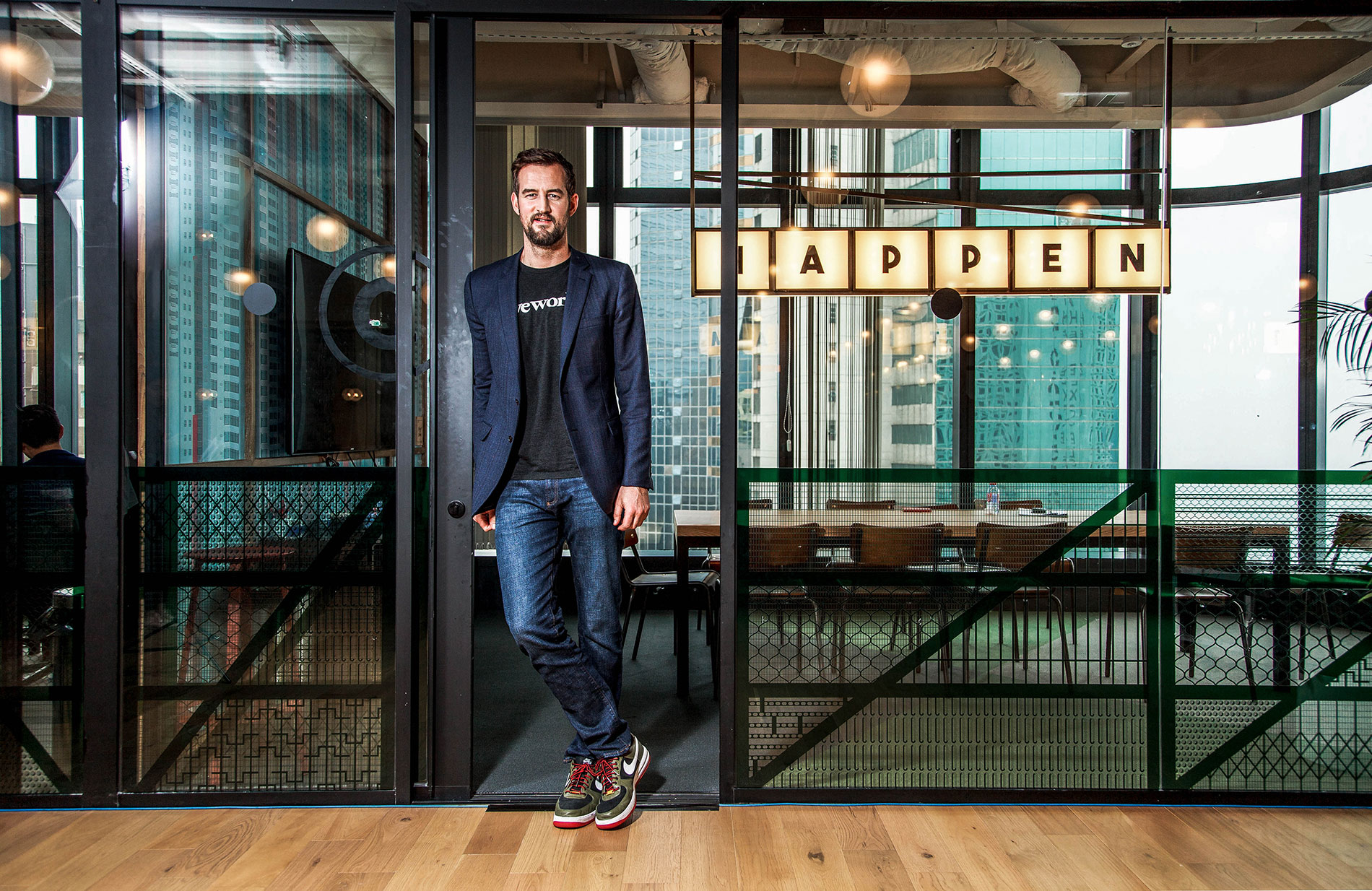WeWork employees have been banned from eating meat on the company’s dime. In July, the coworking behemoth announced that its 6,000 global staff would no longer be able to expense meals including meat and that it won’t pay for any red meat, poultry or pork at WeWork events.
The self-serve ‘Honesty Markets’ present in some of its 400 coworking buildings have also taken meat off the menu.
It’s all part of the company’s drive to cut down its environmental impact, which has also included initiatives to reduce plastic usage and redistribute waste food from its events to good causes.
“New research indicates that avoiding meat is one of the biggest things an individual can do to reduce their personal environmental impact,” WeWork’s co-founder and chief culture office Miguel McKelvey said in a memo to employees announcing the new policy, “even more than switching to a hybrid car.”
The company, which is valued at $20 billion and provides shared work space for freelancers, entrepreneurs and businesses across the US, Europe, Asia and Latin America, estimated the ban would save 16.7 billion gallons (63.2 billion liters) of water, 445 million pounds (202 million kg) of carbon dioxide emissions and more than 15 million animals by 2023.
More plant-based menus

WeWork provides space, community, and services / Image: WeWork
While WeWork is the only global company to mandate that its employees go meat-free, it’s not on its own in promoting more plant-based eating.
At Google’s company canteens, vegan options are listed higher on the menu than meat-based ones, while contract catering giant Sodexo recently launched new plant-based menus across hundreds of university, healthcare and corporate services accounts across the US.
“Offering healthy and sustainable meals is part of our global Better Tomorrow 2025 roadmap for how we improve quality of life for individuals and address the challenge of climate change at the same time,” explained Ted Monk, vice president, sustainability and corporate responsibility, Sodexo North America.
“However, the most exciting aspect is that our customers get to experience new foods with new flavors along with creative adaptations of their existing favorites, with more and better choices overall in the marketplace.”
Is enforcing vegetarianism going too far?
Figures certainly point to the fact that we want to eat less meat. In the UK, the number of people identifying as vegans has increased by 350% in the last ten years and there’s been a massive 600% leap in the US in the last three. But is enforcing plant-based eating on the rest of us really the way to go?

WeWork will no longer serve meat / Image: WeWork
In an interview with Fast Company, the former senior vice president of people operations at Google and author of Work Rules! Laszlo Bock said not. “Human beings really don’t like when you take choice away from them,” he remarked. “What people are much more amenable to is nudges.”
For food sustainability expert Will Nicholson, who is working with the Food Climate Research Network and the Food Foundation to develop usable metrics for assessing food industry progress in delivering sustainable and healthy diets, it’s all about context.
While a relatively extreme approach might work for one contract catering client – say a government environmental department – it could go down like a lead balloon at another.
“I’ve had conversations with caterers recently where they’ve done some really great stuff, increasing the amount of plant-based foods they’re using and reducing the amount of meat, which has had an evidence-based impact on reducing their carbon footprint, but Meat-Free Mondays have actually caused a bit of a negative customer satisfaction effect,” he says.
In these cases, it’s likely to be much more effective to look at the menu plan holistically and implement more subtle changes across the week.
“Look across your menu profile and see where the opportunities are,” Nicholson advices. “And don’t just think about the hot main – look at your grab and go section, your salad bars and your sandwich filler sections.
“Also remember that your environmental impact equals menu multiplied by sales plus waste – so a small change on a dish you’re going to use at high volume could be more impactful than a big change on a dish that isn’t going to be very popular anyway.”
Beyond carbon footprint, caterers also need to be mindful of whether the plant-based products they’re using have been farmed and produced responsibly, as well as remembering that meat-free doesn’t always equal healthy – or lower cost.
“With a meat-free burger, for example, you’d need to make sure there are sufficiently good bits in there on a macro nutrient and micro nutrient level. The temptation with these processed fake meats is to pack them full of salt, sugar and fat,” Nicholson says, adding that if you swap out a meat burger for a meat-free one, the business case may not work in your favour.
“These products are sold at a premium, so it may be better to introduce a curry instead that’s packed full of veg and reduce your costs that way.”
Since introducing its policy in July, WeWork has organised a fully meat-free ‘Summer Camp’, where employees could pick from over 30 street food vendors, as well as introducing a vegetarian market at one of its London locations in partnership with street food collective KERB.
The Vegetarian Society in Britain, for one, is 100% behind the coworking giant’s extreme approach. “We think it’s great they’re taking their environmental responsibility seriously and this will make a big difference,” chief executive Lynne Elliot told the Thomson Reuters Foundation. “We hope other companies will follow suit.”















